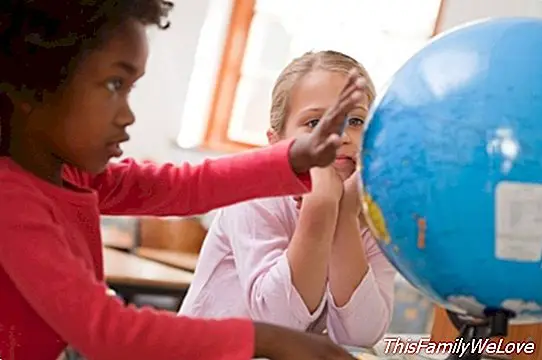100 million children will not finish Primary

Approximately 100 million children of all the countries in the world they will not finish their studies in 2015 and they will leave before finishing Primary Education. This is the estimate made by the NGOs, trade unions and social entities that are members of the World Campaign for Education (CME), which will be launched on Monday 20 April in the new edition of theWorld Action Week for Education.
Only 46 percent of countries have achieved universal schooling
According to the latest data released by Unesco, only half of the countries of the world guarantee schooling in primary education to all children regardless of sex. However, still 2 out of 3 countries still fail to meet the universal education goals set by the UN for 2015, since only46 percent of countries have achieved universal schooling of its population of age to study the first cycle of Secondary Education. Worldwide, the number of students enrolled in that cycle increased by 27 percent, while in sub-Saharan Africa it increased by two.
World Action Week for Education
In this framework, the Week of Global Action for Education will be developed in which more than 7,000 students and teachers from all over Spain. under the motto 'I vote for education, and you?', it is intended to call the attention of the Government so that it commits to include education as a priority objective in its 2015 agenda. For this reason, from April 20 to 26, 29 planned events are planned in 25 cities throughout the country.
Another important request is for Spain to increase Official Development Assistance for education, to reach at least 8% of all bilateral aid. Through the #yovotoporlaeducacion initiative and this website different support proposals will be developed.
Among the objectives of the Global Campaign for Education CME include improving teacher training and raising the number of teachers, it is estimated that there are 4 million teachers missing to achieve 100% Primary Schooling.
The percentage of illiterate people decreases
Although the percentage of illiterate people went from 18 percent in 2000 to 14 percent in 2015), women occupy almost two thirds of the total illiterate population in the world and in sub-Saharan Africa half of them lack basic knowledge of Reading and writing.
Marisol New
You may also like:
- 6 keys to understand the new revalidations of Primary, ESO and Bachillerato
- Finland will stop teaching children calligraphy




